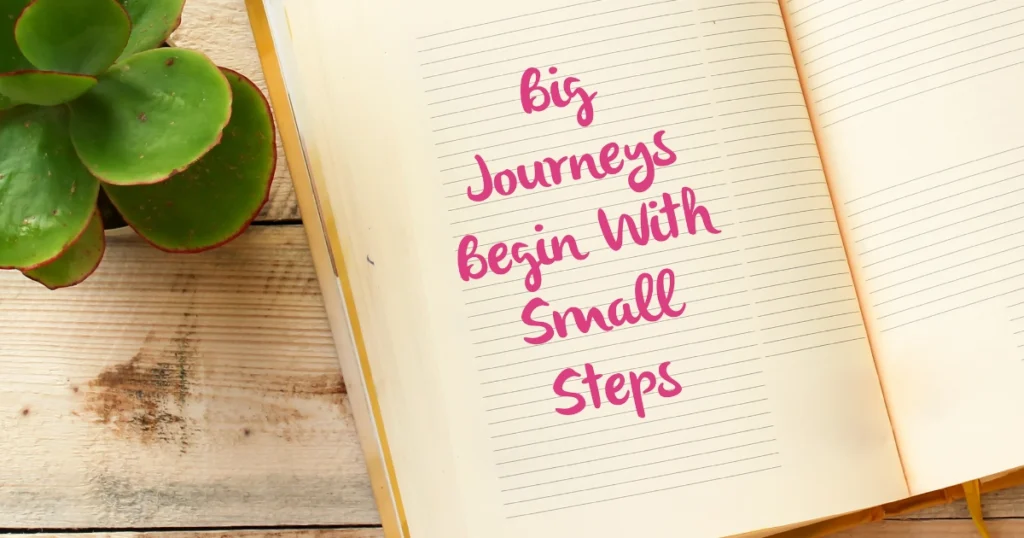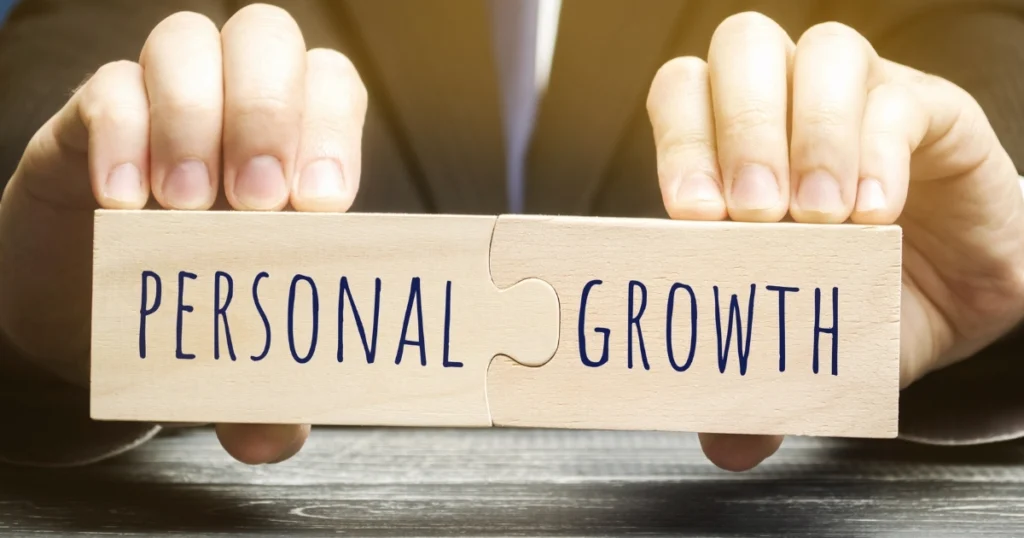In today’s fast-paced world, the ability to grow, adapt, and evolve is more valuable than ever. Success is no longer defined solely by material achievements, it’s also about emotional intelligence, purpose, and well-being. This comprehensive Personal development guide will help you strengthen your mindset, develop meaningful habits, and design a life filled with clarity, confidence, and direction.
Unlike random self-help tips or fleeting motivation, this structured guide combines psychology, neuroscience, and real-world strategies to create measurable progress. Whether you’re a student, a professional, or someone seeking greater balance, you’ll find proven tools here to start your transformation journey effectively.

What Is Personal Development?
Personal development refers to the continuous process of improving your skills, mindset, and habits to become the best version of yourself. It encompasses emotional awareness, career growth, communication, health, and even spirituality. The goal is not perfection, but progress – to become more intentional about how you live, think, and react.
People who invest in personal growth are more resilient, focused, and fulfilled. They develop an inner strength that enables them to face challenges gracefully and find meaning in their experiences. In essence, personal development is a lifelong journey toward self-mastery and empowerment.
Why Personal Development Matters
Without personal development, many people drift through life reacting to circumstances rather than creating opportunities. Growth allows you to take control of your path, build purpose, and nurture a sense of fulfillment. When you commit to personal improvement, you’re not only shaping your external success, you’re also enhancing your inner world.
Personal growth improves:
- Confidence and self-esteem: You begin to trust your judgment and decisions.
- Focus and clarity: You set priorities aligned with your values.
- Relationships: You communicate better and develop empathy.
- Emotional balance: You become more patient and mindful in handling stress.
- Productivity: You learn to use your time effectively to reach meaningful goals.
In short, personal development creates harmony between who you are and who you aspire to be.
How to Begin Your Own Personal Development Path?
Many people wonder how to start a personal development journey when the concept feels abstract or overwhelming. The key is to start small but stay consistent. True transformation begins with awareness and structured action.
Here’s a simple approach to get started:
- Define your vision: What kind of life do you want to lead? Write it down.
- Identify your core values: These act as your compass when making decisions.
- Assess your current situation: Acknowledge your strengths and growth areas.
- Set realistic goals: Begin with short-term objectives that build momentum.
- Create daily routines: Small, repeated actions compound over time.
- Reflect regularly: Track your progress and realign when needed.
Consistency and patience are essential. Even 15 minutes of focused reflection or practice each day can create lasting change.
The Mindset Behind Personal Growth
The foundation of any Personal development guide lies in cultivating the right mindset. A growth mindset-believing you can develop skills and intelligence through effort, helps you view setbacks as opportunities rather than failures.
Here’s how to nurture a growth mindset:
- Reframe challenges: View obstacles as learning experiences.
- Replace self-criticism with self-compassion: Growth takes time; be patient.
- Embrace feedback: Use constructive criticism to improve, not to feel defeated.
- Celebrate progress: Every step forward counts.
With this mindset, you become more adaptable and resilient in all areas of life.
Step-by-Step Personal Development Guide
A step-by-step approach helps you turn your goals into action. Here’s a simple framework to follow:
- Awareness: Begin by understanding where you are and what’s holding you back.
- Goal Setting: Use the SMART framework-specific, measurable, attainable, relevant, and time-bound goals.
- Planning: Break goals into smaller, actionable tasks with timelines.
- Action: Implement new routines that align with your goals.
- Reflection: Evaluate what’s working and what needs adjustment.
- Adaptation: Modify your plan as you grow and learn.
Following this cycle ensures steady progress rather than rushed changes that fade over time.
Self-Awareness: The Cornerstone of Growth
Self-awareness is the first and most critical step toward transformation. It involves recognizing your emotions, triggers, and patterns of behavior. By understanding what drives your actions, you can replace limiting beliefs with empowering ones.
To cultivate self-awareness:
- Journal daily: Reflect on your thoughts and emotions.
- Seek honest feedback: Others can see patterns you might miss.
- Practice mindfulness: Meditation helps you observe your inner world without judgment.
When you know yourself deeply, you gain clarity, control, and direction.
Habits of Personal Development That Transform Your Life
Habits are the building blocks of personal growth. Without them, even the best plans fail. Successful people follow personal development habits that change your life by reinforcing discipline, focus, and positivity every day.
Here are key habits to integrate:
- Morning routines: Start your day intentionally through gratitude, journaling, or exercise.
- Continuous learning: Read or listen to podcasts that inspire and educate you.
- Reflection time: Set aside 10 minutes nightly to assess your growth.
- Health rituals: Maintain proper nutrition, rest, and movement.
- Positive environment: Surround yourself with supportive, uplifting individuals.
Habits build character. Over time, they shape not only what you do-but who you become.
The Role of Emotional Intelligence
Emotional intelligence (EI) plays a vital role in personal development. It enables you to understand your emotions and those of others, fostering empathy, patience, and effective communication. People with high EI manage stress better and maintain stronger relationships.
To develop EI:
- Recognize your emotions before reacting.
- Practice active listening in conversations.
- Respond thoughtfully instead of impulsively.
- Develop empathy by putting yourself in others’ shoes.
Emotional maturity creates stability and confidence in both personal and professional spheres.

Building a Sustainable Growth Routine
To maintain progress, it’s important to create systems that support long-term change. Transformation doesn’t happen overnight; it’s built through small, repeatable actions.
Here’s how to stay consistent:
- Schedule “growth time” daily, whether for reading, reflection, or meditation.
- Use habit trackers or apps to measure consistency.
- Reward progress to keep motivation alive.
- Revisit goals monthly to ensure alignment with evolving priorities.
When you make growth a lifestyle rather than a phase, improvement becomes effortless.
Why Does This Personal Development Works?
This comprehensive Personal development guide combines theory with action. It helps you move beyond motivation and into sustainable transformation by merging clarity, strategy, and consistency. The goal is to empower you to create a life aligned with your purpose-internally fulfilled and externally successful.
By adopting this framework, you not only build discipline but also develop emotional strength and self-confidence. It’s a holistic approach that supports mental, emotional, and behavioral evolution.
FAQs About Personal Development
1. What is a personal development?
Personal development is the process of improving yourself, your skills, knowledge, mindset, habits, and overall well-being, to reach your full potential. It involves self-awareness, goal-setting, learning, and taking deliberate actions to grow emotionally, mentally, and professionally.
2. What are the 5 steps in a personal development?
Self-awareness, goal-setting, planning, taking action, and reflection form the five essential steps of personal development.
3. What habit will improve your life?
Consistent self-reflection and mindfulness improve clarity, focus, and emotional balance.
4. How to start a personal development plan?
Begin with awareness, define measurable goals, create an action plan, and review progress weekly.
5. What is the first step of personal development?
Self-awareness, understanding your thoughts, feelings, and habits that shape behavior.
6. What is the correct order for personal development?
Awareness → Planning → Execution → Reflection → Adjustment.
7. What makes personal development successful?
Commitment, consistency, and the willingness to learn from every experience ensure lifelong growth.
A Lifelong Journey of Growth
Personal development isn’t about changing who you are; it’s about evolving into your best self. Growth requires patience, awareness, and courage to embrace discomfort. When you commit to learning and self-improvement, you unlock limitless potential.
Start small, stay consistent, and remember, every day is an opportunity to evolve. Transformation is not a destination but a journey of self-discovery and empowerment.
Begin your journey toward growth, clarity, and self-empowerment with Soul Orbit.
Visit our homepage to explore all our personal coaching and transformation services.
